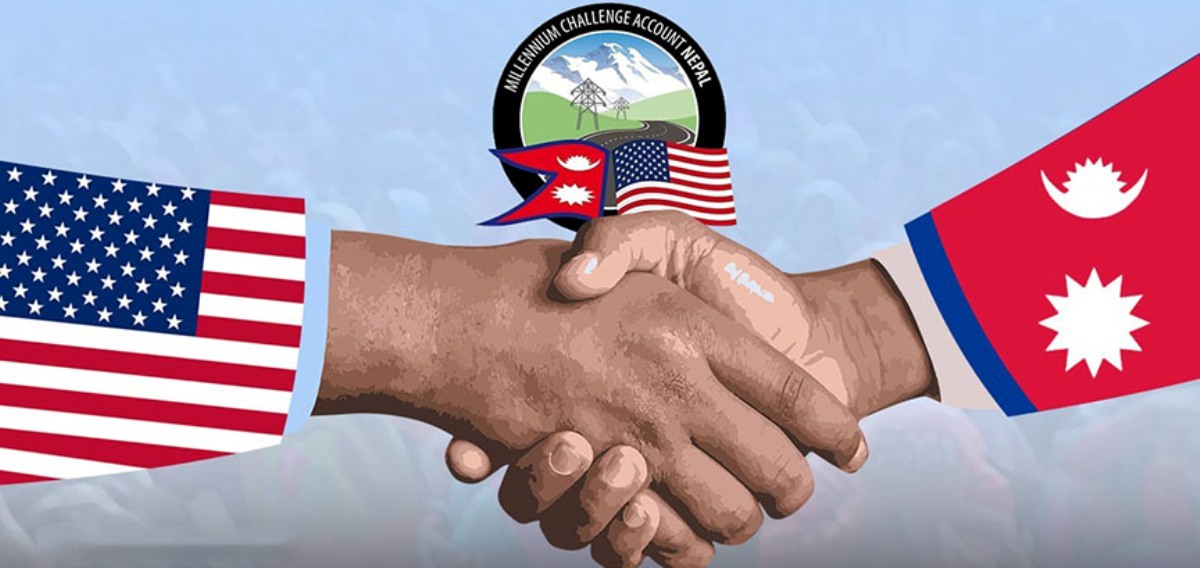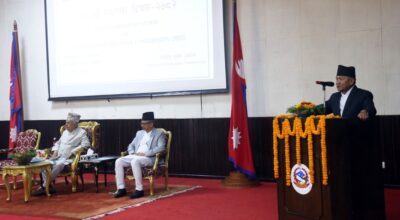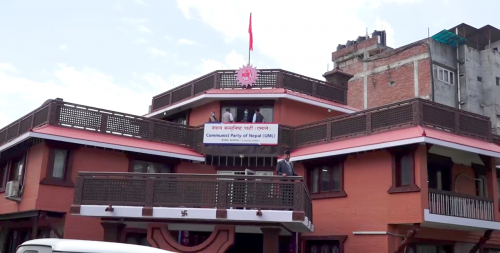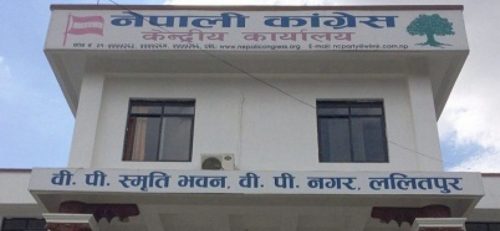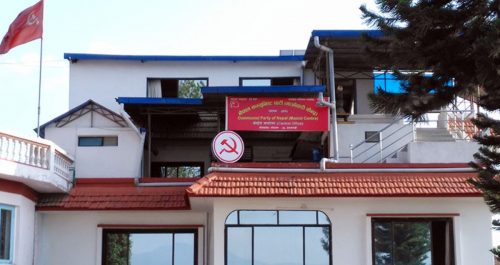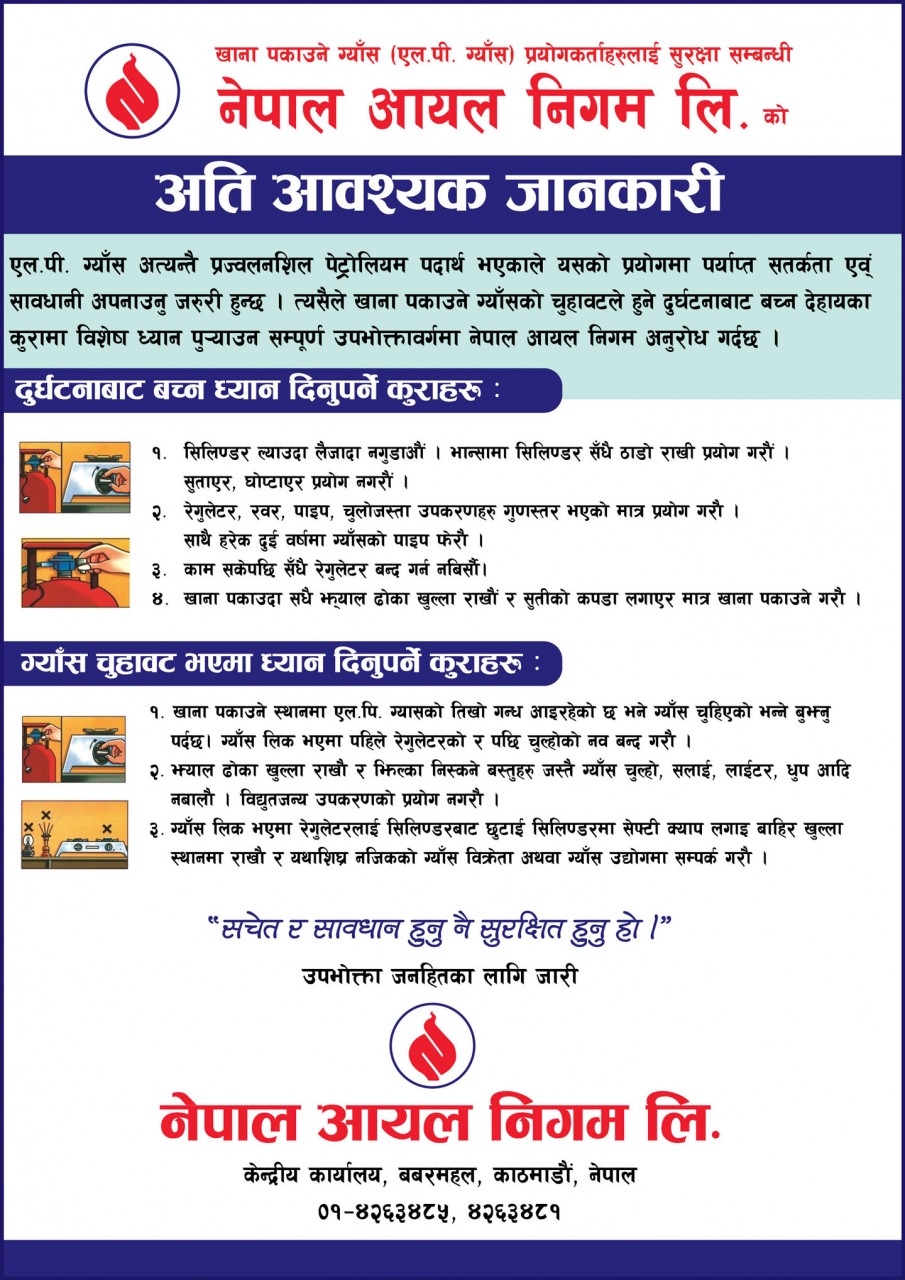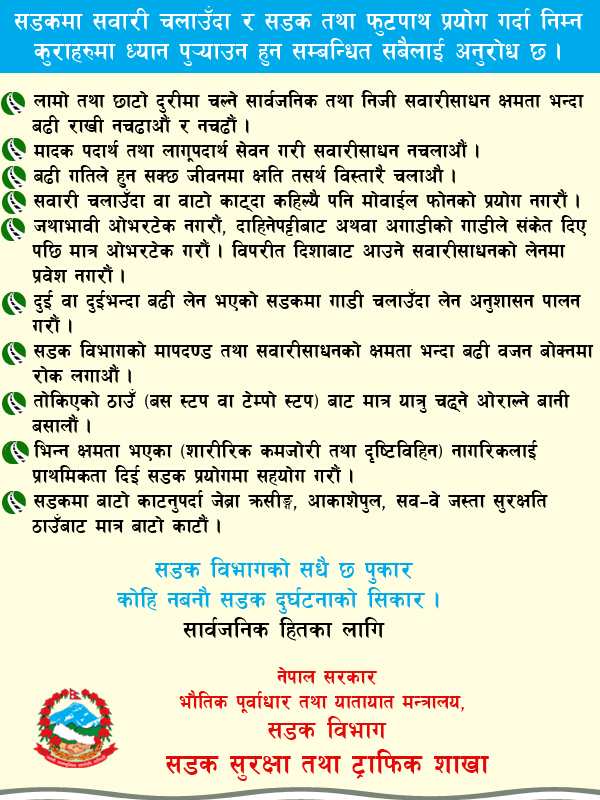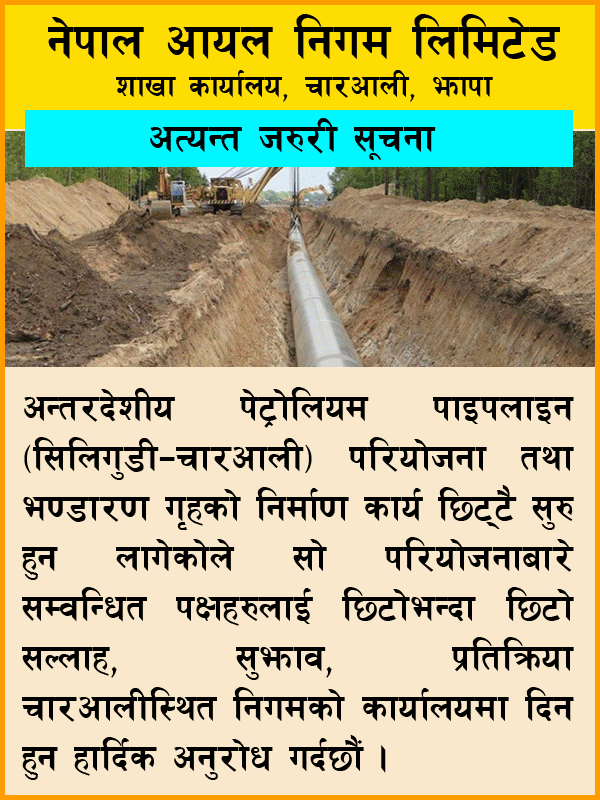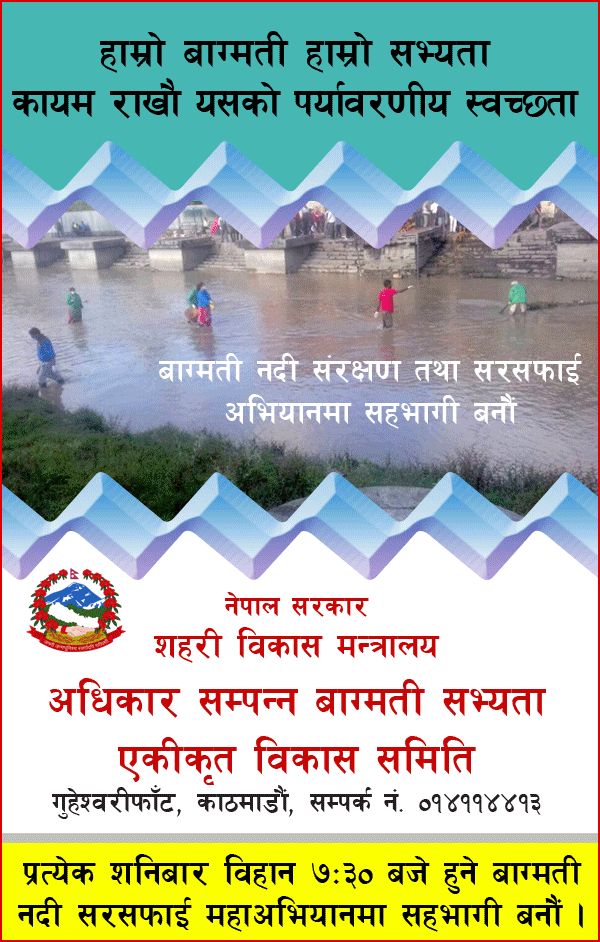It has been clarified that the Government of Nepal itself has chosen all the projects receiving grants from the Millennium Challenge Corporation (MCC) Nepal Compact of the United States for the country’s economic growth.
At a time when there are widespread comments and criticisms about MCC, the agency has made such clarifications noting the MCC had provided coordination support to the team of the Nepal government in selecting the project and the US government employees had only facilitated the process.
In response to the queries of the Nepal government about the MCC compact, the agency said Nepal’s 2015 Transmission Line Master Plan itself had identified the need of the project and then after the Transmission Line Development Plan, 2017 reemphasized this on the basis of the need. These emphatic needs of the Government of Nepal have been reflected in the MCC Compact, it is informed.
On the comments flared up connecting the MCC project with nationality, the Agency has also clarified that the MCC compact undertaken with all MCC partner counties was an international agreement directed by the principles of international law.
MCC responded that it was crucial to keep the MCC compact agreement equivalent to the international agreement to ensure expedition in the implementation of the MCC compact based on its experiences in other countries.
It is also especially important in the context of the limited time of five-year for its implementation. The Agency further clarified that the implementation of Compact projects would be executed inconsistently with the Nepali laws.
The US Law, Millennium Challenge Act-2003, has prohibited the use of grant assistance for any military purpose. The compact is clear about legal restrictions. The MCC has mentioned that there is no relation between this compact and any military alliance or security strategy.
The MCC’s selection of eligible partners for a compact is based on legally prescribed criteria and does not involve the military side. The country should be categorized as a nation having low-income or low-middle income by the World Bank and it should pass the scoreboard of MCC’s annual index based on equitable and democratic governance, investment for the people, and their economic freedom to be eligible for getting selected from MCC’s Board of Directors.
Nepal was selected in December 2014 as an eligible country for developing a compact program with MCC in recognition of Nepal’s consistently high results and continued commitment to democratic governance on the MCC’s annual index scoreboard. All MCC compacts are international agreements.
With this in context, the government of Nepal had drawn a conclusion that parliamentary approval was necessary as per the laws of Nepal to sign a compact international agreement through the Ministry of Law, Justice, and Parliamentary Affairs.
It has been clearly stipulated in the agreement that the amount to be received from MCC should not be used for military purposes.
Executive Director of MCA, Nepal, Khadga Bahadur Bista, said there is no reality that foreign troops would come to Nepal as the MCC has clarified the grant assistance would not be used for military purposes. Bista shared, “The agreement has not mentioned anything about the military issues. It is surprising from where and how this propaganda is flaring up.”
In response to a query from the Government of Nepal, the MCC has clarified that there was no agreement under the MCC Nepal Compact Indo-Pacific Strategy and that MCC Compacts were only an agreement between the MCC and the partner country’s government.
Similarly, MCC in its response has clearly noted that any decision of the country regarding Indo-Pacific strategy would remain separate and independent from MCC Nepal Compact.
‘MCC was established in 2004 focusing on poverty reduction through economic growth in countries committed to democratic values such as the rule of law, investment in the people, and economic freedom. Neither the MCC is an agreement under the Nepal Compact Indo-Pacific Strategy, nor it is a part of any military strategy of America”, reads the response sent by MCC to the government of Nepal.
The government of Nepal had established MCA-Nepal in 2018 and MCA-Nepal is run by a Board of Directors comprising Nepali government officials and members of private sectors, civil society, and community leadership of Nepal.
On MCC, Nepali Congress leader and former Finance Minister Dr. Ram Sharan Mahat said there is no point to say that the MCC grant is under the military alliance. It is just a rumor that this project is under the Indo-Pacific Strategy of the US., he said, adding Nepal could not become a part of the military alliance under this project as the country has adopted a non-alignment policy, said leader Mahat.
Urging people not to harbor any illusion about the project, he said that the US assistance is not loans but grants while stressing the need for grabbing this opportunity as he said much efforts were invested in bringing this project.
The Office of Auditor General of Nepal has full right to audit activities and expenditures of MCA-Nepal and it has been doing so, said MCC.
MCC Nepal compact did not affect or limit the sovereign right of Nepal to sign assistance or investment agreements with any other country and both the US and Nepal as sovereign countries have the ability to terminate the agreement on 30 days’ notice, the US side has clarified.
The project aims to benefit Nepali people at the highest limit in cooperation with the Government of Nepal, it said.
The Office of Auditor General has been auditing activities and expenditures of the MCA-Nepal annually. The deadline for implementing the project is five years.
Thereafter the project timeframe will expire in Nepal. However, some follow-up activities like monitoring, auditing, and evaluation of the project will continue. In this regard, MCC will cooperate with the Government of Nepal. There will be no physical office of MCC in Nepal after the project completion, it has been said.
MCA-Nepal was established in 2075 BS under the Ministry of Finance. There is a provision that the Finance Ministry Secretary chairs the MCA-Nepal board of directors. Members of the board of directors are joint secretaries of the Ministries of Energy, Water Resources and Irrigation and Physical Infrastructure and Transport, executive director of the Nepal Electricity Authority, and a representative each from the private sector and civil society. Its executive director becomes its member-secretary.
At present, MCC is coordinating with 24 countries in Africa, Latin America, and Asia.
In 2017, then Joint-Secretary Baikuntha Aryal and the MCC Acting Chief Executive Officer Jonathan Nash had signed the MCC compact in the presence of the then Minister for Finance Gyanendra Bahadur Karki and US Deputy Secretary of State John J Sullivan in Washington. Under the MCC, the US has agreed to provide $500 million in grants which Nepal will spend in infrastructure developments prioritizing energy and roadways. (RSS)



